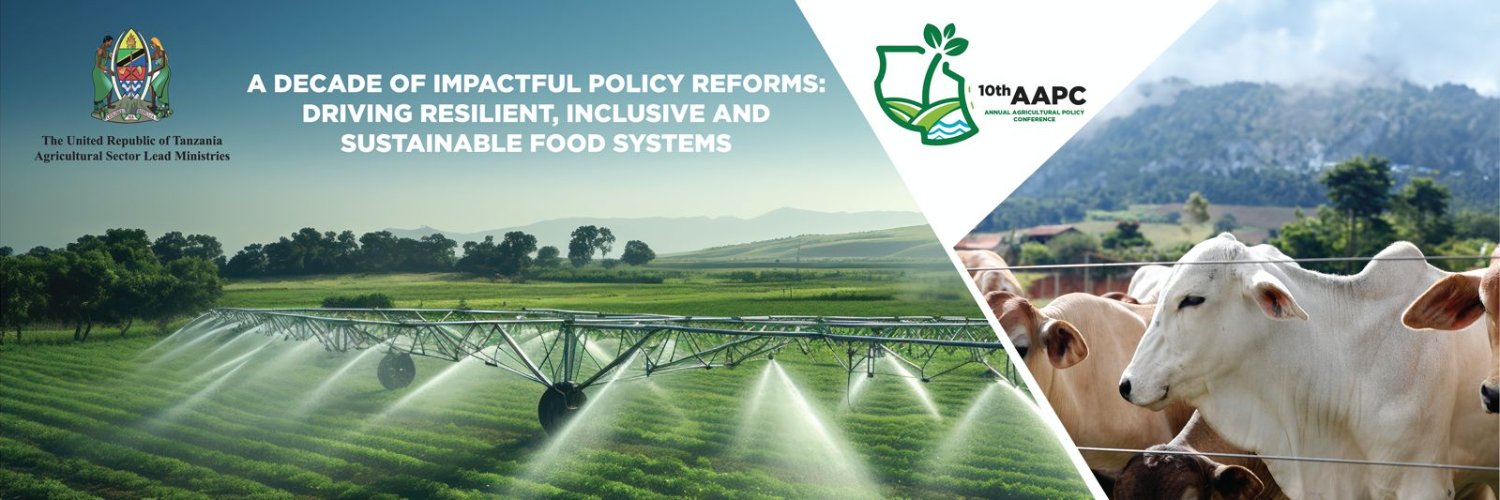President Samia: Tanzania to showcase progress at AGRF’s Africa Food Systems Summit
By AJM Muchoki
Tanzania is taking a comprehensive approach to transforming its agricultural sector, intending to grow the sector by 10% by 2030, according to President Samia Suluhu Hassan. She announced this ambitious goal during her speech at the “Food Action Partnership: Investing in Greater Resilience” event in Davos. The current growth range is about 3.6%.
To support this goal, President Samia noted that the government has increased the budget for agriculture by four times compared to the previous year and is launching initiatives to improve irrigation systems, create sustainable food systems, and support young people in the agricultural sector.
She added that Tanzania would also showcase its progress and developments in the agricultural sector at the AGRF’s Africa Food Systems Summit 2023, set to take place in September in Dar es Salaam.
Dr Agnes Kalibata, President of AGRA, met with Tanzania’s Minister for Agriculture, H.E. Hussein Bashe, late last year to discuss their partnership for the next five years. During the meeting, Dr. Kalibata reaffirmed AGRA’s commitment to supporting Tanzania’s farmers by working with partners to unlock the power of the private sector. AGRA and 25 AGRF’ Africa’s Food Systems Forum Partners Group will work closely with Tanzania to make the summit successful.
The summit is likely to solidify further Tanzania’s position as the emerging leader in Africa’s agricultural sector if it brings together leaders, policymakers, scientists, heads of governments, private institutions, farmers, and youth in the agriculture and food systems landscape to discuss and agree on practical actions and solutions that drive Africa’s food security and better livelihoods for all.
“Tanzania has created opportunities for national food system changes to increase food production, improve people’s lives, and help combat climate change,” said President Samia.
The agricultural sector is crucial for national development. It has become a formidable source of foreign currency, with the balance of trade favouring Tanzania with all her neighbouring countries. President Samia has consistently emphasized the importance of young people investing in this sector as it presents a viable business opportunity for Tanzania to remain the food trade powerhouse in the region.
With the sector being a significant contributor to the country’s economy and a vital source of foreign currency, AGRA’s partnership with Tanzania is expected to boost the agricultural sector further and position the country as a regional leader in food production.
During the World Economic Forum in Davos, President Samia and Dr Agnes Kalibata, President of AGRA had the opportunity to meet with actor Idris Elba and his wife, Sabrina Dhowre Elba. President Samia discussed her initiatives to empower youth in Tanzania and invited the Elbas to participate in the upcoming Africa Food Systems Summit.
.
Case Study: Improving Irrigation and Water Management in the Mbarali Region of Mbeya, Tanzania
The agricultural sector in Tanzania plays a vital role in the country’s economy and development. To further improve the sector, the government is investing in improving irrigation systems, including revitalising 2,773 irrigation schemes and creating new ones to cover over 29 million hectares for sustainable irrigation.
One specific area that the government is focusing on is the Mbarali region of Mbeya, where farmers and livestock often struggle with water shortages. To address this issue, the government is constructing 6 large dams and eight modern irrigation systems in the 91,231-acre area designated for farming. The Ministry of Agriculture is also implementing a large-scale “Block Farming System” in these areas and installing cattle troughs in 14 dams nationwide.
These efforts have the potential to make a significant impact on the lives of farmers and livestock in the Mbarali region. The large dams and modern irrigation systems will have the capacity to store 131,535,000 cubic meters of water, significantly reducing the burden on farmers and livestock who previously struggled with water shortages. The “Block Farming System” will also improve the efficiency and productivity of farming in the area, leading to increased food production and better livelihoods for farmers.
These efforts in the Mbarali region demonstrate Tanzania’s commitment to achieving a sustainable and thriving agricultural sector for the country and Africa. With continued investment in irrigation and water management, Tanzania is positioning itself as a leader in the continent’s agricultural sector and working towards its goal of increasing the agricultural sector by 10% by 2030.
End


